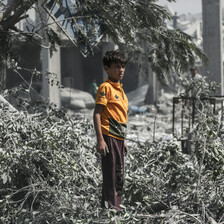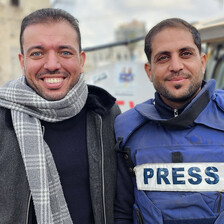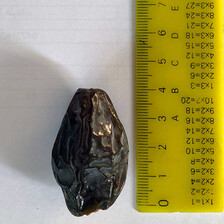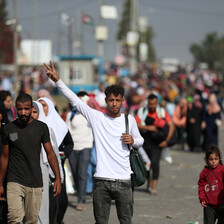The Electronic Intifada 2 September 2025
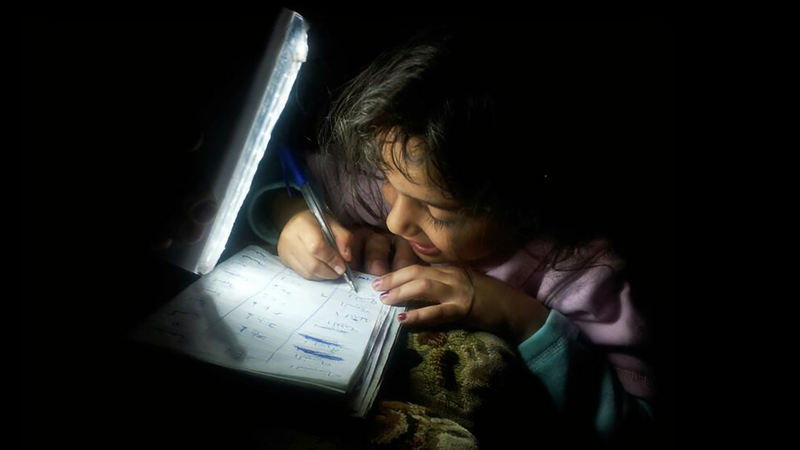
Nesma studying during a power outage in 2012.
Nearly 13 years ago, during Israel’s assault on Gaza in 2012, I took this photo of my youngest sister, Nesma.
She was almost 5 years old, full of energy and curiosity. Despite the power cuts and relentless bombardment, she would sit quietly with her book, diligently completing her kindergarten exercises.
At the time, I didn’t realize that this small act, holding a pen amid chaos, would become the very definition of her life in Gaza.
Today, history has repeated itself. I took another photo of Nesma, now 17 years old. The scene looks the same: Nesma, her books and her determination.
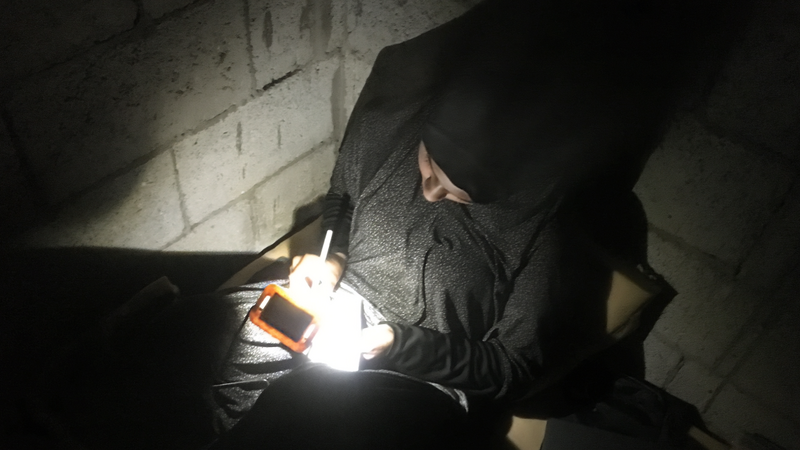
Nesma studying during the ongoing genocide.
But everything else has changed.
She is no longer in her room; she has been displaced for months. She no longer has teachers or classrooms; her school is being used as a shelter. There are no textbooks, desks, electricity or internet. She studies in the middle of a war, surrounded by hunger, siege and death.
She’s survived six Israeli assaults on Gaza since she was born in 2008. She’s brilliant: fluent in three languages, gifted in mathematics and physics and dreams of becoming a doctor. But now she studies under unimaginable conditions. Still, she perseveres.
Cruel twist of fate
Just days before the war began, Nesma graduated from the English Access Program, a two-year course funded by the US State Department that provides English language instruction and additional workshops to talented students.
She had earned top marks and was thinking about applying for scholarships to study in the United States. Instead, in a cruel twist of fate, the very weapons supplied by that same government would soon destroy her home, her room, her desk, her books and her school, shattering not only the walls around her but also the dreams she had so carefully built.
Nesma has lost nephews, her brother-in-law and her teachers during the genocide. Yet she still refuses to stop. She knows that education is her only path forward, her only form of resistance, and her best chance at contributing to a better future for Palestine and for humanity.
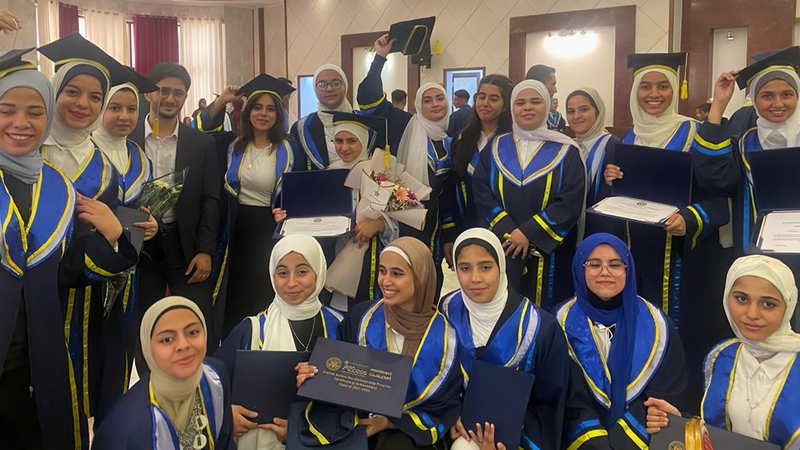
Nesma, seen second from top right of the photo, displays her certificate at the English Access Program graduation ceremony.
Nesma’s life is a stark example of how childhood in Gaza has been stolen.
Imagine that she has never known what it’s like to have 24 hours of uninterrupted electricity, except for the single month she spent outside Gaza. Imagine that she lived in 12 places in the last 12 months with no privacy and without having her basic needs met.
Nesma is not unique in her suffering, hundreds of thousands of children in Gaza are just like her.
For most children around the world, school is a place of learning and playing, a foundation for dreams and aspirations. For children in Gaza, education has become an act of defiance. Every page they write, every equation they solve, is done in tents, in ruins, or in shelters amid the very real threat of death.
Over the past two years, Nesma has studied without the basic conditions that any student needs to succeed. Yet she presses on, teaching herself, helping younger children in the family to read and write, telling them bedtime stories and refusing to let the genocide erase her future.
This determination is not just resilience, it is resistance.
Israel has tried to erase every element of normal life: cutting electricity, bombing schools and universities, killing teachers and students alike. Yet, like Nesma, thousands of children continue to learn, defying the logic of war that seeks to break their spirit.
In this context, studying is a revolutionary act.
Extraordinary sacrifice
Nesma dreams of becoming a doctor. She tells me that she wants to heal her people, to give to Gaza what it needs the most. It is not just a career aspiration, it is a statement of hope in a place where Israel is doing all it can to deny young people a future. Every time she picks up a book, she is saying to the world: You can destroy my school, but you cannot destroy my will to learn.
Gaza’s children embody extraordinary sacrifice. They have endured starvation, thirst, displacement and the constant threat of death. What makes their suffering so profound is that the world continues to watch and express outrage but has failed to end the genocide.
Liberation is not just about weapons or politics. It is about preserving life, identity and dignity in the face of annihilation. In Gaza, education is not just about personal ambition, it is about collective survival. Every child like Nesma who continues to learn is insisting on a future in defiance of Israel’s aims to destroy it.
Education cannot thrive under bombs, and no child should have to teach herself in a shelter without electricity or clean water. Our supporters outside Gaza must not only push for an end to the genocide but also commit to rebuilding our schools, universities and libraries, our places of knowledge and culture.
Ultimately, Palestine does not need charity; it needs freedom, dignity and the ability for its children to dream again without fear.
Nesma has become my teacher. She reminds me every day that perseverance is a form of resistance, that survival itself is a statement of defiance. While powerful forces beyond their control make decisions with a profound impact on their fate, children like her quietly rebuild hope, one word, one page and one dream at a time.
When I see her diligently pursue her studies under the worst of circumstances, I know that one day Nesma will fulfill her dream of becoming a doctor.
She will heal the wounds of her people, just as she heals mine with her determination to study, dream and build a life despite the war, starvation and siege.
Asem Alnabih is an engineer and PhD researcher currently based in Gaza City. He serves as the spokesperson for Gaza Municipality and has written for many platforms in both Arabic and English.
